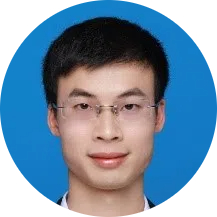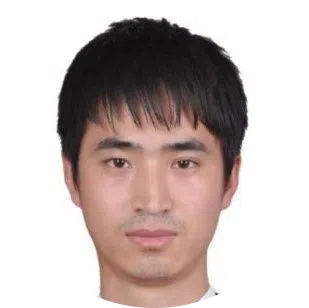Special Session 8 会议特别专题 8
AI-aided Signal Processing
Description: The field of Signal Processing
(SP), traditionally anchored in mathematical models
and statistical methods like the Fourier Transform
and Kalman filtering, is experiencing a fundamental
transformation fueled by Artificial Intelligence
(AI), especially deep learning. While classical SP
provides interpretability and optimality under
defined conditions, its effectiveness diminishes
when confronted with the high dimensionality,
non-linearity, and complexity characteristic of many
modern, real-world signals and systems where
accurate underlying models are elusive.
This paradigm shift necessitates innovative
approaches that transcend the limitations of purely
model-based or purely data-driven methods. Below, we
highlight the critical motivations driving the
integration of AI into signal processing:
1. Overcoming Classical Limitations: Traditional SP
techniques often struggle with complex,
non-stationary signals or when system dynamics are
poorly understood. AI, particularly deep learning,
excels at learning intricate patterns directly from
data, offering performance breakthroughs in
scenarios challenging for classical methods.
2. The Rise of Hybrid Intelligence: The most
impactful advancements stem not from replacing SP
blocks with AI, but from synergistic hybridization.
Combining the principled structure and domain
knowledge embedded in classical algorithms with the
adaptive learning and complex pattern recognition
capabilities of AI yields systems more powerful than
either approach in isolation. This fusion is key to
tackling problems with partially known dynamics or
intricate data structures.
3. Beyond Block Replacement: The field has matured
beyond viewing AI as a simple substitute. There's a
growing recognition of the enduring value of SP
principles as structural priors or complementary
components within AI-enhanced systems, leading to a
pragmatic synthesis of analytical rigor and
empirical learning.
4. Automated Feature Discovery: Deep learning offers
the ability to automatically learn hierarchical
features from raw signals, reducing the need for
manual, expert-driven feature engineering and
potentially uncovering non-intuitive signal
characteristics.
5. Transforming SP Research & Education: AI's
influence extends to the methodology of the field
itself. AI tools are now employed not just as
subjects of study but as instruments to analyze
pedagogical effectiveness and accelerate knowledge
discovery within the SP community.
This special session provides a vital forum to
explore the dynamic intersection of AI and Signal
Processing. By uniting researchers and
practitioners, we aim to dissect the challenges and
opportunities presented by this convergence,
examining novel hybrid architectures, integration
strategies, and the impact across diverse
applications. Contributions will shape the
understanding of how AI is fundamentally redefining
signal analysis, interpretation, and manipulation
for future intelligent systems. We invite
contributions on theoretical foundations,
algorithmic innovations, and practical
implementations that showcase the power and
potential of AI-aided Signal Processing.
Session organizers
Assoc. Prof. Yimao Sun, Sichuan University, China
Prof. Yue Ivan Wu, Sichuan University, China
Assoc. Prof. Weiliang Zuo, Xi’an Jiaotong
University, China
The topics of interest include, but are not limited to:
▪ AI-augmented Classical Signal Processing
▪ AI-aided Kalman Filtering and Adaptive Filtering
▪ Compressive Sensing and Sparse Signal Processing
with AI
▪ AI-augmented Optimization and Inverse Problems
▪ AI-aided Signal Enhancement and Denoising
▪ AI-driven Time-Frequency Analysis
▪ Intelligent Beamforming and Precoding in MIMO
System
▪ AI in Near-Field Signal Processing
▪ AI-driven Channel Estimation, Prediction, and
Modeling in Wireless communications
▪ AI for Semantic Communication
▪ AI-based Audio and Speech Processing
▪ Generative AI for Signal Synthesis, Augmentation,
and Analysis
▪ Biomedical Signal Processing and Medical Image
Analysis With AI
▪ AI for Sensor Data Processing and Sensor Fusion
▪ Explainable AI for interpreting AI-aided signal
processing systems
Submission method
Submit your Full Paper (no less than 5 pages with two colums) or
your paper abstract-without publication (200-400
words) via
Online Submission System, then choose Special
Session 8 (AI-aided Signal Processing)
Template Download
Introduction of
Session organizers
 Assoc. Prof. Yimao Sun,
Sichuan University, China
Assoc. Prof. Yimao Sun,
Sichuan University, China
Y. Sun (Member, IEEE) received the B.Eng. degree in
electronic information engineering in 2013, and the
M.Sc. and Ph.D. degrees in information and
communication engineering in 2015 and 2019,
respectively, all from the University of Electronic
Science and Technology of China (UESTC), Chengdu,
China. From September 2017 to September 2018, he was
a Visiting Ph.D. Student sponsored by the China
Scholarship Council (CSC) at the University of
Missouri, Columbia, MO, USA, where he collaborated
with Prof. K. C. Ho (Fellow, IEEE). Since March
2021, he has been an Associate Research Fellow with
the College of Computer Science, Sichuan University,
Chengdu, China. His research interests include
statistical signal processing, parameter estimation,
passive source localization and tracking,
intelligent signal processing, array signal
processing, and direct position determination. He
was recognized as an Outstanding IoT Teacher of
Sichuan Province in 2023. He was the Principal
Investigator of projects funded by the National
Natural Science Foundation of China (NSFC) Fund. He
has also served as a core member in several NSFC
General Programs and a sub-project of the National
Key R&D Program related to 5G-based indoor
localization and visible light communication.
Dr. Sun serves as a Guest Editor for Frontiers in
Signal Processing and Applied Sciences. He has
served as an Award Chair for ICSPS 2026 and a
Session Chair for multiple international
conferences, and has been an invited speaker at
events such as ICSPS 2024, the Academic Event Series
on "Target Detection and Localization in Complex
Environments" (2023), and the Frontier Technology
Forum on "Intelligent Spectrum Management and
Utilization" (2022). He has also served on the
committees of multiple international conferences and
is an active reviewer for numerous journals,
including the IEEE Transactions on Signal
Processing, IEEE Transactions on Wireless
Communications, IEEE Journal of Selected Topics in
Signal Processing, and IEEE Internet of Things
Journal.
 Prof. Yue Ivan Wu,
Sichuan University, China
Prof. Yue Ivan Wu,
Sichuan University, China
Yue Ivan WU (Senior Member, IEEE) obtained a Ph.D.
in electronic & information engineering in 2010 from
the Hong Kong Polytechnic University. He joined
Sichuan University (Chengdu, Sichuan, China) in July
2013, and is currently a Professor in the College of
Electronics and Information Engineering, Sichuan
University (Chengdu, Sichuan, China).
Y. I. Wu is/was on the editorial boards of The
Journal of the Acoustical Society of America, IEEE
Transactions on Intelligent Transportation Systems,
IET Signal Processing, Electronics Letters, IEEE
Access, and Telecommunication Systems.
He has some experience on the research areas of
space-time signal processing and acoustic vector
sensors.
 Assoc. Prof. Weiliang Zuo,
Xi’an Jiaotong University, China
Assoc. Prof. Weiliang Zuo,
Xi’an Jiaotong University, China
Weiliang Zuo received the B.E. degree in electrical
engineering and the Ph.D. degree in control science
and engineering from Xi'an Jiaotong University,
Xi'an, China, in 2010 and 2018, respectively. During
2016 to 2017, he was a visiting Ph.D student in the
School of Electrical and Computer Engineering at
Georgia Institute of Technology (Georgia Tech). He
is currently an associate professor at the College
of Artificial Intelligence, Xi'an Jiaotong
University. His current research interests include
array and statistical signal processing, pattern
recognition, and medical imaging processing. He has
published scientific articles in refereed journals,
such as IEEE Journal of Selected Topics on Signal
Processing, IEEE Transactions on Signal Processing,
Pattern Recognition, etc.
